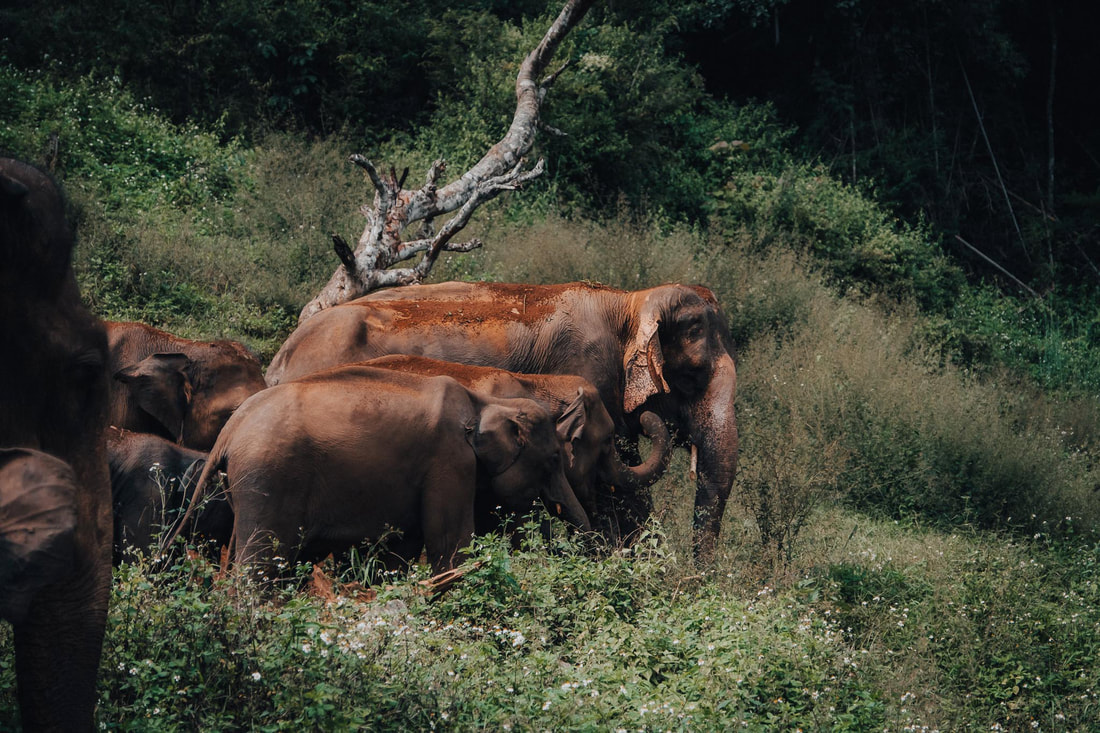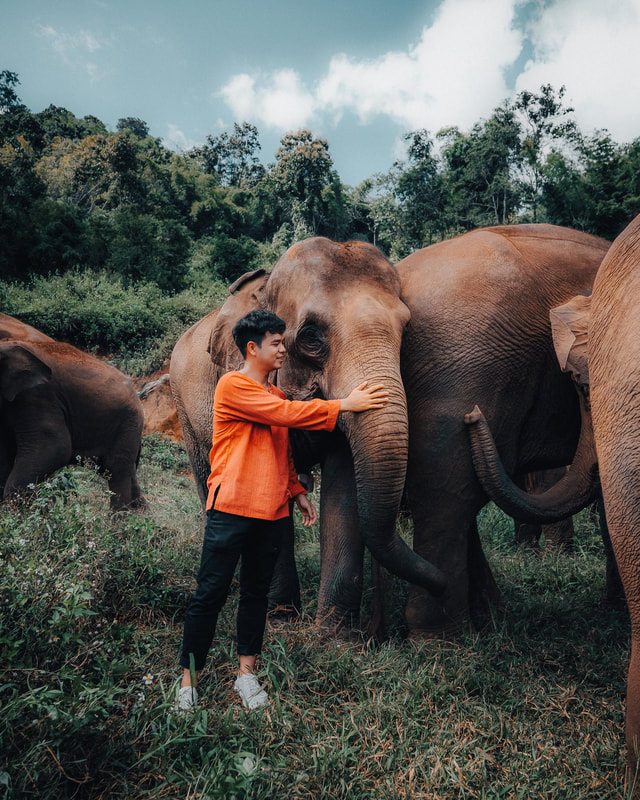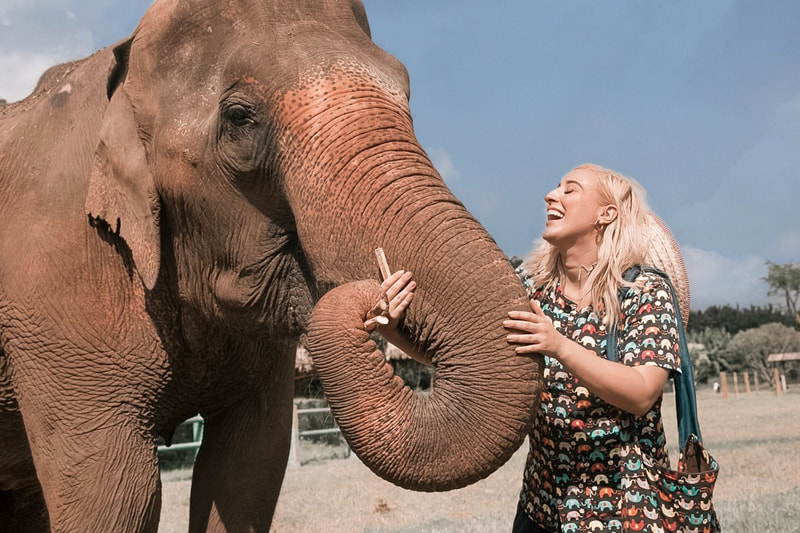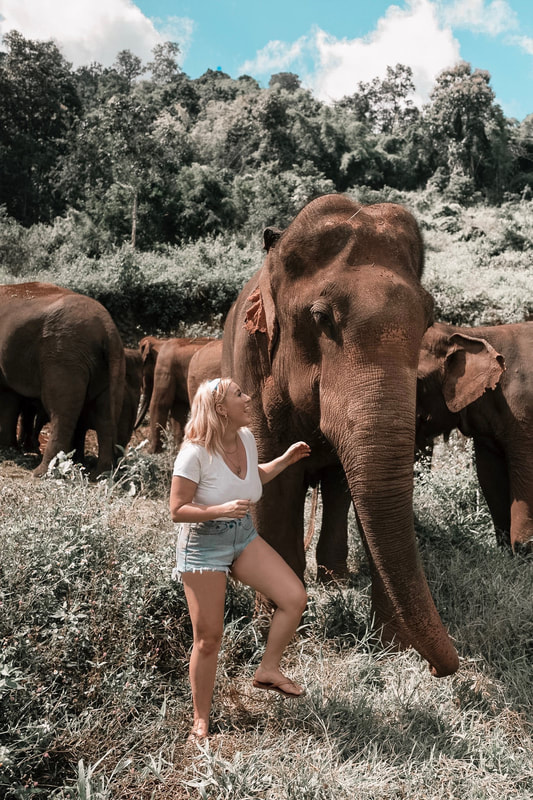By Little Wandering Wren
Photos in this essay were taken during a trip organized by the Tourism Authority of Thailand (TAT) to Lampang and Chiang Mai to learn about the current situation on elephant care in Thailand, and to hear about more sustainable solutions for elephant-based tourism in the future.
Joining this trip was a diverse group of influencers and journalists for an incredible three days’ learning from vets, elephant welfare specialists and those working in elephant tourism and rehabilitation fields.
Photos in this essay were taken during a trip organized by the Tourism Authority of Thailand (TAT) to Lampang and Chiang Mai to learn about the current situation on elephant care in Thailand, and to hear about more sustainable solutions for elephant-based tourism in the future.
Joining this trip was a diverse group of influencers and journalists for an incredible three days’ learning from vets, elephant welfare specialists and those working in elephant tourism and rehabilitation fields.
The Jumbo dilemma
Over the centuries, elephants have always played a major role in Thai society, from the ancient wars, culture and economy to royal iconography and more recently the country’s tourism industry. That they are Thailand’s national symbol is well deserved.
In the early1900s, there were an estimated 100,000 domesticated or captive elephants in Thailand. Some were used in logging operations as recently as 1989, when Thailand banned nearly all commercial logging because of the rapid destruction of its forests.
Sixty years ago, forests are estimated to have covered 273,628 km2. By 2011, they had dwindled to only 171,586 km, which resulted in a rapid decline in the number of elephants.
In the early1900s, there were an estimated 100,000 domesticated or captive elephants in Thailand. Some were used in logging operations as recently as 1989, when Thailand banned nearly all commercial logging because of the rapid destruction of its forests.
Sixty years ago, forests are estimated to have covered 273,628 km2. By 2011, they had dwindled to only 171,586 km, which resulted in a rapid decline in the number of elephants.
A mere 3,456 domesticated elephants remained in Thailand by 2007, along with some 3,000 wild elephants. Ten years later, the number of captive elephants had risen to an estimated 3,783, plus a corresponding number of wild elephants, thanks mainly to them being declared an endangered species in Thailand in 1986.
On Elephant Day 2017, the Department of National Parks announced that the number of wild elephants was increasing 7-10 percent. Areas that had seen the most marked increase were the western forest in Thungyai Naresuan Wildlife Sanctuary and the eastern forest in Dong Phayayen-Khao Yai forest complex.
Thai elephant also live in the border areas near Burma and Cambodia as well as a number of national parks.
With the ban on logging, some owners of unemployed elephants would take their animals into Thailand’s cities and beg in the streets. For a while they even became a curiosity and attraction in the red light districts of Bangkok. This cruel exploitation was quickly outlawed because of the heat and pollution.
In recent years, Thailand has seen a significant increase in elephant camps and refuges funded by visiting tourists. These are not without their controversies, however, with welfare advocates questioning whether it is abusive for tourists to ride the creatures. The debate rages on.
Since the advent of Covid19, unfortunately, the number of foreign tourists has suddenly dropped, which has forced the closure of some of these sanctuaries and now threatens the future of many animals since it is virtually impossible to release domesticated or trained elephants into the wild.
More joint public-government effort is urgently required to protect these majestic animals for future generations to enjoy – C.H.
On Elephant Day 2017, the Department of National Parks announced that the number of wild elephants was increasing 7-10 percent. Areas that had seen the most marked increase were the western forest in Thungyai Naresuan Wildlife Sanctuary and the eastern forest in Dong Phayayen-Khao Yai forest complex.
Thai elephant also live in the border areas near Burma and Cambodia as well as a number of national parks.
With the ban on logging, some owners of unemployed elephants would take their animals into Thailand’s cities and beg in the streets. For a while they even became a curiosity and attraction in the red light districts of Bangkok. This cruel exploitation was quickly outlawed because of the heat and pollution.
In recent years, Thailand has seen a significant increase in elephant camps and refuges funded by visiting tourists. These are not without their controversies, however, with welfare advocates questioning whether it is abusive for tourists to ride the creatures. The debate rages on.
Since the advent of Covid19, unfortunately, the number of foreign tourists has suddenly dropped, which has forced the closure of some of these sanctuaries and now threatens the future of many animals since it is virtually impossible to release domesticated or trained elephants into the wild.
More joint public-government effort is urgently required to protect these majestic animals for future generations to enjoy – C.H.





 RSS Feed
RSS Feed
















